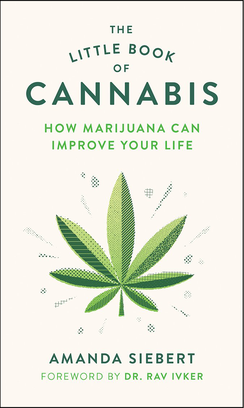Related Research Articles

420, 4:20 or 4/20 is cannabis culture slang for marijuana and hashish consumption, especially smoking around the time 4:20 pm (16:20). It also refers to cannabis-oriented celebrations that take place annually on April 20.

Marc Scott Emery is a Canadian cannabis rights activist, entrepreneur and politician. Often described as the "Prince of Pot", Emery has been a notable advocate of international cannabis policy reform, and has been active in multiple Canadian political parties at the provincial and federal levels. Emery has been jailed several times for his cannabis activism.
Blair Timmothy Longley is a Canadian politician, activist, and leader of the Marijuana Party.

Cannabis in Canada is legal for both recreational and medicinal purposes. Medicinal use of cannabis was legalized nationwide under conditions outlined in the Marihuana for Medical Purposes Regulations, later superseded by the Access to Cannabis for Medical Purposes Regulations, issued by Health Canada and seed, grain, and fibre production was permitted under licence by Health Canada. The federal Cannabis Act came into effect on October 17th, 2018 and made Canada the second country in the world, after Uruguay, to formally legalize the cultivation, possession, acquisition, and consumption of cannabis and its by-products. Canada is the first G7 and G20 nation to do so.

Ross Rebagliati is a Canadian snowboarder who won a gold medal in the men's giant slalom event at the 1998 Winter Olympics. The International Olympic Committee initially stripped him of the medal due to a failed drug test for cannabis use, but was overruled by an appeals court two days later, resulting in the medal being restored. Since retiring from snowboarding, Rebagliati has become an entrepreneur in the cannabis industry.

Jodie Emery is a Canadian cannabis rights activist and politician. She is the spouse of fellow activist Marc Emery. Until the business was shut down by police, the couple were co-owners of Cannabis Culture, a business that franchised pot dispensaries, later deemed to be illegal. They had obtained the cannabis from illegal sources, according to Crown prosecutors. They are the former operators and owners of Cannabis Culture magazine and Pot TV.

Dana Albert Larsen is a Canadian author, businessman, philanthropist and activist for cannabis and drug policy reform. Larsen currently operates businesses and non-profit societies in Vancouver including The Medicinal Cannabis Dispensary, The Medicinal Mushroom Dispensary, The Coca Leaf Cafe, Pothead Books, and the Get Your Drugs Tested centre.

Cannabis in British Columbia (BC) relates to a number of legislative, legal, and cultural events surrounding the use and cultivation of cannabis in the Canadian province of British Columbia. As with the rest of Canada, cannabis became legalized on 17 October 2018, following the enactment of the Cannabis Act, or Bill C-45. Prior to that, though the drug was illegal in Canada, its recreational use was often tolerated and was more commonplace in the province of BC as compared to most of the rest of the country. The province's inexpensive hydroelectric power and abundance of water and sunshine—in addition to the many hills and forests —made it an ideal cannabis growing area. The British Columbia cannabis industry is worth an estimated CA$2 billion annually and produces 36.6 percent of all Canadian cannabis. The province is also the home of the cannabis activist and businessman Marc Emery.

In the United States, the use and possession of cannabis is illegal under federal law by way of the Controlled Substances Act of 1970. Cannabis is classified as a Schedule I drug under the Controlled Substances Act, determined to have a high potential for abuse and no accepted medical use, prohibiting its use for any purpose. Despite this, most states have passed laws to legalize the use of cannabis for medical purposes, while close to a majority of states have legalized for recreational use.

The Cannabis Act (C-45) of June, 2018 paved the way for the legalization of cannabis in Canada on 17 October 2018. Police and prosecution services in all Canadian jurisdictions are currently capable of pursuing criminal charges for cannabis marketing without a licence issued by Health Canada. The Supreme Court of Canada has held that the federal Parliament has the power to criminalize the possession of cannabis and that doing so does not infringe upon the Canadian Charter of Rights and Freedoms. The Ontario Court of Appeal and the Superior Court of Ontario have, however, held that the absence of a statutory provision for medical marijuana is unconstitutional, and to that extent the federal law is of no force and/or effect if a prescription is obtained. The recreational use of cannabis has been legalized by the federal government, and took effect on 17 October 2018.

The Cannabis Act is a law which legalized recreational cannabis use in Canada in combination with its companion legislation Bill C-46, An Act to Amend the Criminal Code. The law is a milestone in the legal history of cannabis in Canada, alongside the 1923 prohibition.

Cannabis in Ontario is legal for both medical and recreational purposes. Cannabis in Canada has been legal for medicinal purposes since 2001 under conditions outlined in the Access to Cannabis for Medical Purposes Regulations, issued by Health Canada, while seed, grain, and fibre production are permitted under licence. The federal Cannabis Act, legalizing cannabis for recreational use, came into effect on 17 October 2018.

On October 17, 2018, cannabis was legalized in Canada for recreational and medical purposes. It was already legal for medicinal purposes, under conditions outlined in the Marihuana for Medical Purposes Regulations issued by Health Canada, and for seed, grain, and fibre production under licence by Health Canada.

Cannabis in Prince Edward Island became legal when the national Cannabis Act went into force on October 17, 2018.

Cannabis in Newfoundland and Labrador became legal when the national Cannabis Act went into force on October 17, 2018.

A smoke-in is a protest in favor of cannabis rights or more specifically legalization of cannabis.

The Ontario Cannabis Retail Corporation, operating as Ontario Cannabis Store (OCS), is a Crown corporation that manages a legal monopoly over the online retail and wholesale distribution of recreational cannabis to consumers and privately operated brick and mortar retailers respectively throughout Ontario, Canada.

The Little Book of Cannabis: How Marijuana Can Improve Your Life is a 2018 nonfiction book about cannabis by Canadian journalist Amanda Siebert, published by Greystone Books. It was the bestselling nonfiction book about cannabis in Canada as of early 2019. A Winnipeg Free Press review stated that the book "avoid[s] being preachy" and "compassionately guides readers through ten areas where cannabis could have therapeutic benefits".

Travis Lupick is a Canadian journalist and author. Lupick has worked as a staff reporter for The Georgia Straight and as a freelance reporter for the Toronto Star, and Al Jazeera English, among others.
References
Sources
- Bell, David (February 4, 2019), Weed probably won't make you fat, according to book about pot's benefits, CBC News,
The Georgia Straight's cannabis writer, Amanda Siebert, separates fact from fiction
- King, Carrie M. (March 7, 2019), Simplify Marijuana: Amanda Siebert on the Surprising Ways Cannabis Can Improve Your Life, Blinkist
- Sparkes, Ainsley (May 10, 2019), Cannabis books: Up in smoke or high times?, BookNet Canada
- Pawson, Chad (May 5, 2017), 'Hippie newspaper' celebrates 50 years covering counterculture, environment, arts, CBC News
- Dubb, Steve (November 21, 2018), "Marijuana Legalization in Canada Opens Door to Long-Delayed Scientific Research", Nonprofit Quarterly
- Johnston, Patrick (October 13, 2017), "Vancouver Postmedia reporters take home Webster awards", Vancouver Sun